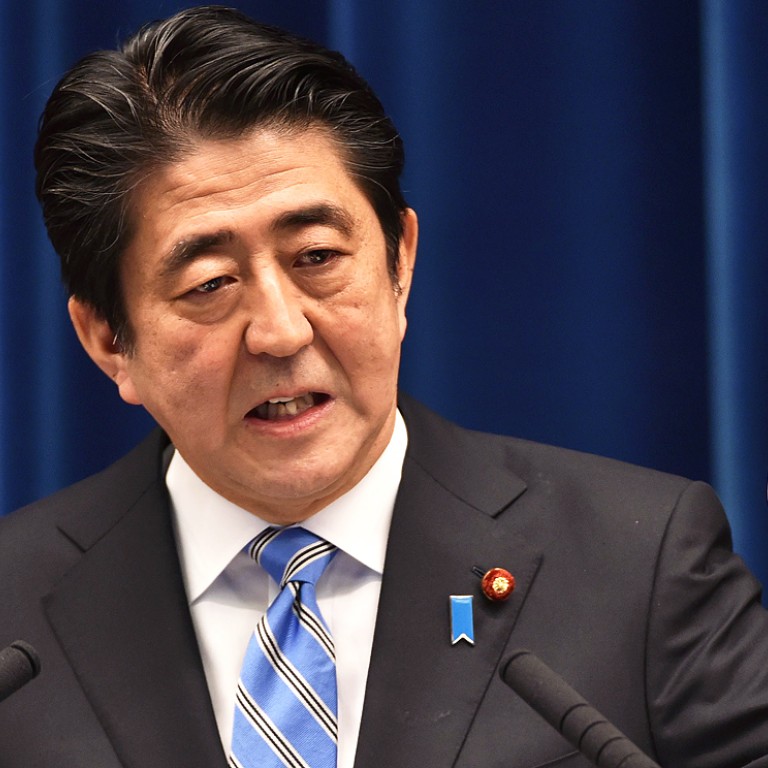
Update | Shinzo Abe gambles on early election in December as economy stalls
Unexpected recession spurs Shinzo Abe to try to retain hold on power before ratings slip further
Japanese Prime Minister Shinzo Abe said yesterday he would call an early election to seek a fresh mandate for his economic policies, and postpone an unpopular sales tax rise, a day after data showed the economy had slipped back into recession.
The world's third-biggest economy unexpectedly shrank for a second consecutive quarter in July-September, a sign the pain from an initial rise in the sales tax to 8 per cent from 5 per cent in April was lasting longer than expected.
Abe said he would delay for 18 months a second increase to 10 per cent that had been scheduled for October 2015. He added he would dissolve the lower house on Friday for an election that must be held within 40 days. The vote is expected on December 14.
The prime minister - who returned to power in December 2012 pledging to revive growth with a radical mix of hyper-easy monetary policy, spending and reform - insisted his policies were working and challenged the opposition to come up with an alternative.
"I am aware that critics say 'Abenomics' is a failure and not working but I have not heard one concrete idea what to do instead ... Are our economic policies mistaken, or correct? Is there another option?" he asked at a televised news conference. "This is the only way to end deflation and revive the economy."
But Abe pledged the sales tax rise, needed to fund swelling social security costs and curb Japan's massive public debt, would be implemented without fail in April 2017.
No election for parliament's lower house needed to be held until late 2016. But Abe is hoping to cement his grip on power before his support ratings, now below 50 per cent in some surveys but still sturdy by Japanese standards, slip further.
His voter support took a something of a hit from funding scandals in his cabinet last month, and next year he is expected to tackle unpopular policies such as restarting nuclear reactors that went offline after the 2011 Fukushima crisis.
Critics say Abenomics has benefited big companies and affluent city dwellers by weakening the yen and boosting the stock market, but that ordinary Japanese have been hurt as inflation has outpaced wage increases.
The bad economic news has given the opposition camp ammunition for the election campaign, although the parties are weak and divided and likely to have trouble cooperating.
Tatsuo Kawabata, a senior official of the opposition Democratic Party, said the prime minister was trying to cover up signs that Abenomics was failing.
"Abe is trying to rest everything by dissolving parliament," Kawabata said in comments shown on NHK public TV.
Watch: What Japanese are saying about PM Shinzo Abe tax delay and elections

